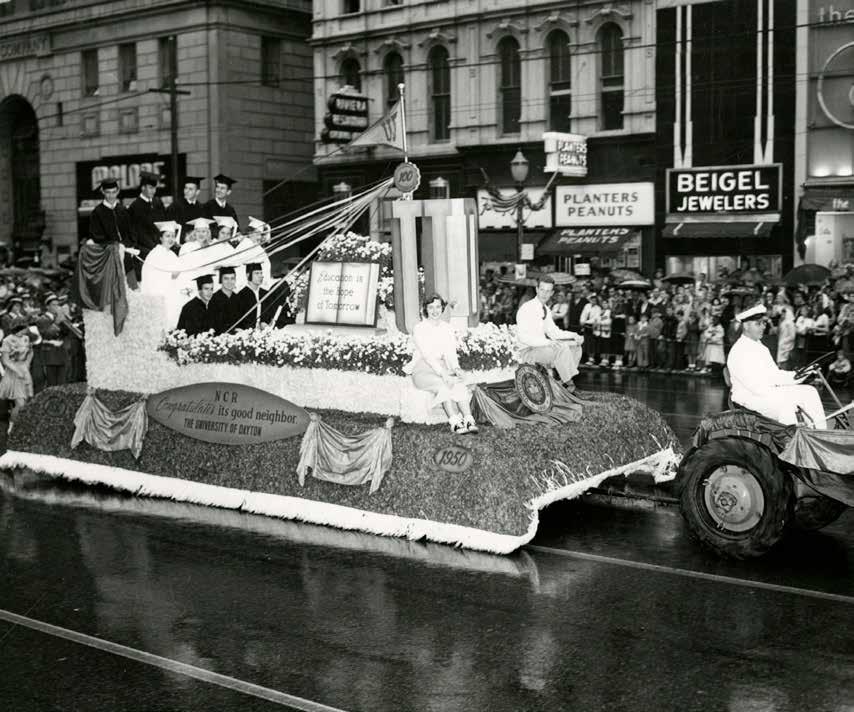
3 minute read
Parting Words
FROM THE EDITOR
PARTING WORDS
At our table
WE SAT IN THE BEDROOM, MY YOUNGEST
cross-legged as I wove her hair into Dutch braids. I was multitasking while remote working, also listening to faculty discuss the common good and its implications in a time of pandemic. (See story, Page 52.) She and I heard Brother Raymond Fitz, S.M. ’64, talk about the social injustice in our region that contributes to increased mortality for our Black neighbors, from infant deaths to reduced life expectancies to worse outcomes from COVID-19.
I was helping our oldest girl straighten her hair when associate professor Maria Gabriela Vivero joined the faculty discussion on Zoom. She told us it is an economic travesty — for the country and for all its people — to perpetuate disparities between socioeconomic groups.
“There are families that, as much as they try, are never going to make it because the playing field is so slanted,” Vivero said.
I was struck by the congruence of their presentations, first from a president emeritus and longtime community advocate and then from an associate professor of finance and economist. Their words would soon find their way to our dinner table.
When our family gathers to eat, the talk is usually 10% about food, 50% about boys. Since the coronavirus tore the children away from school, we’ve also been talking a lot about the disease.
Where did it come from? How dangerous is it? Will they get sick? How long do you have to go to school to become an epide
miologist? And, on this particular day, why are so many Black people dying of COVID-19?
My husband and I are white, as is our middle daughter. Our other two girls, our foster daughters, are African American. All three often bring to our table questions of race, class and other fights for equality. They roll together history learned in school and current politics gleaned from news and social media with stories from their young lives. They all know what it’s like to live in what Fitz described as a low-opportunity neighborhood. They have firsthand experience with challenges faced there by families, schools and communities. But to their questions of why racism exists and injustice persists, as a family we decide there are no easy answers. It got even harder with the killings of Breonna Taylor, George Floyd and Ahmaud Arbery. This is an electric moment in history. The pandemic has laid bare the human cost of systemic racism. The broadcast of every murder slashes at the tale of equality. We can do better. We must do better, for our country and for its people.
My husband and I tell our children we love them and that they are all made in the image and likeness of God. We tell them they are equal, but that equity will be necessary to bring about true justice. Listen to others, we say, and then have the hard conversations. While we want to protect you and keep you safe, there will be times when you cannot and should not sit still. Go.
MICHELLE TEDFORD ’94
Editor, University of Dayton Magazine magazine@udayton.edu
University Marketing and Communications 300 College Park Dayton, OH 45469-1303
TIME LAPSE CENTENARY CELEBRATION

A new class of graduates marches into the future during this Oct. 21, 1949, parade celebrating the centennial founding of the “school on the hill.” More than 9,000 citizens participated in the parade before a crowd of 100,000 in downtown Dayton, as hosted by the Dayton Chamber of Commerce. This year we celebrate another centennial — of renaming the school to the University of Dayton. Read more, Page 28. Photograph courtesy UNIVERSITY ARCHIVES






